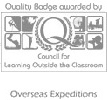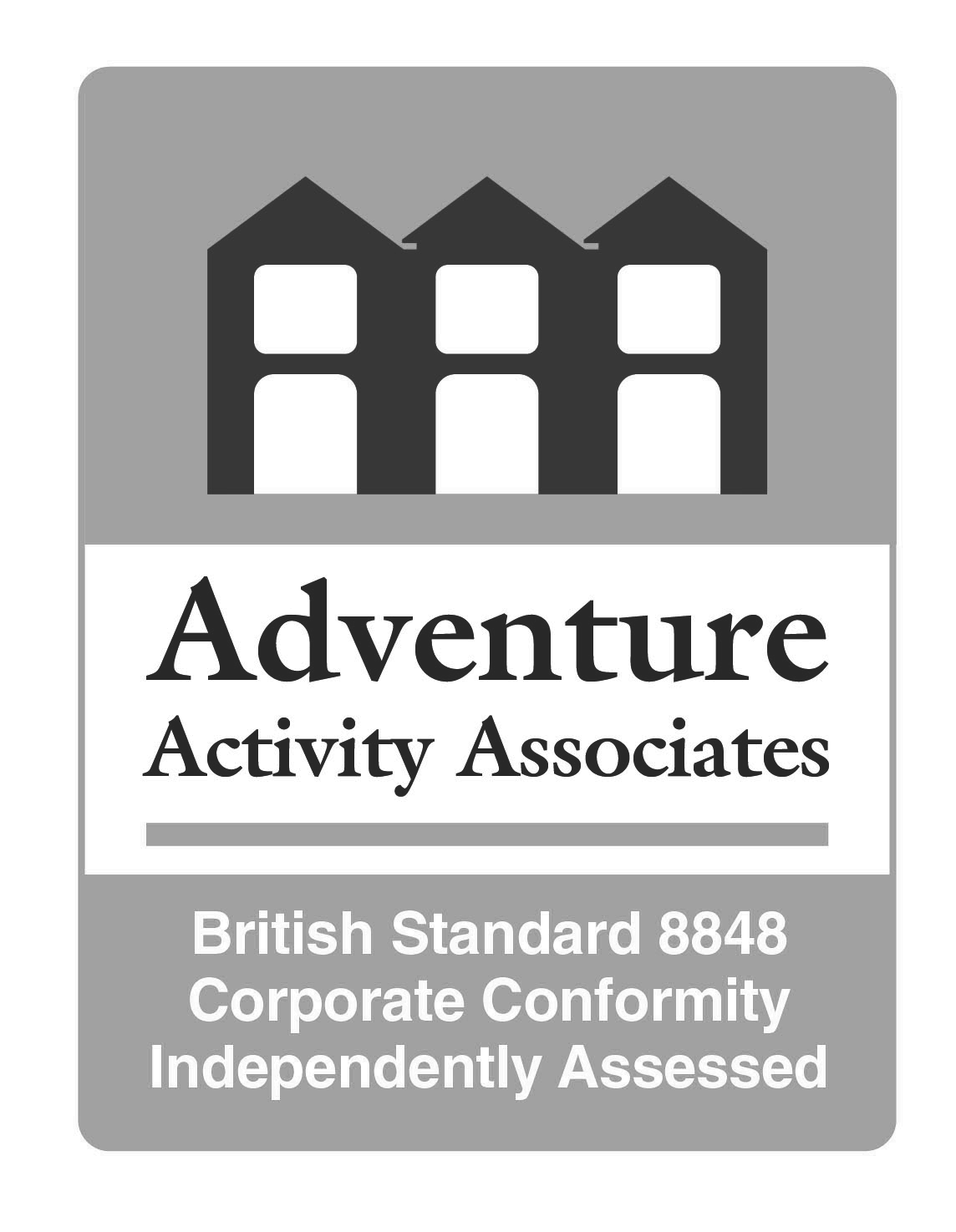A True Adventure Leader - Part 2
Adventure, Company News, Expedition News, Latest Expeditions | 21st January 2019

part 2 – The leaders view on the benefits of adventure
what are adventures all about?!
Why? The aim of the adventures is for the students to grow in confidence and to experience things in a supportive environment that they may not get a chance to do alone. It’s not only the adventure that can be challenging but raising the funds beforehand has its own trial and tribulations, getting to know new team members even though they may be in the same year, learning to deal with different personality types as well as getting fit.
The first barrier is to sign up! This can be huge hurdle for some students or just another opportunity for fun for others. Encouragement from adults is key, whether they are family members or teachers. To be told ‘give it a go’ can be the start of something really amazing for that student, whether they are shy or bold. Students sign up for many different reasons. Some for the travel and the development, some to learn a new language or to get outside of their comfort zones.
What? As the Technical Leader, I get to meet my team of students and the teachers at the training day or weekend a good few months before we head out on our expedition. The team is already formed and has been working on various elements of the expedition for a while now, so they are starting to understand the need for good communication and team work in order to get the best out of their time away. During this time together we get to walk, talk and eat together, check kit, discuss the itinerary, chat about the country we are going to and for me to answer any questions the students and teachers may have. I like to find out their expectations of the adventure, why they are doing it, what they want to get out of it, what they are both nervous and excited about. Here is an example:
Excited: new country, food, culture, animals, being on my own, being in a new place, the project, the trek and wildlife.
Nervous: being homesick, being fussy about food, mood swings, heights, altitude sickness, no social media, no home comforts, injections beforehand and being in a tent.
Having these open chats gives the quieter ones as much of a platform to chat as the more confident students. I like to instil an open house policy where students can chat to us about anything, not that they always will but they know that they can. We also talk about a Code of Conduct which everyone signs up to as well as discussing the role rotations.
The students will be cooking for themselves and for us adults this weekend, as on some of the adventures, so it gives them an idea of time management and just how much everyone will eat, who can eat what and making sure that everyone has enough of the right food. This weekend is quite often the first time that students have been away from parents so it can be quite emotional for them, but it gives them a good grounding for what is to come on adventure, that everyone is in it together and that by working as a team and being empathetic, we can all have a great experience.
On the adventure itself
The adventure has a number of elements which include an enrichment project, usually a trek or another physical activity, plus the experience such as safari or sight-seeing depending on location. Each student will look forward to one or more of the elements of the adventure more than the other, and each will have different expectations of each element. In between those parts some travel is involved so students need to get the whole team to different locations as per the itinerary. Each travel section is usually booked for by our in-country agents but it’s the liaison with these agents that the students need to deal with as well as sourcing food, restaurants, finding our booked accommodation, buying supplies for the project, being on time and learning that
Nerves will definitely be a jangling before we leave for the airport, but we have a couple of hours at school to do kit checks and finalise the last-minute bits and bobs before we bid farewell to Blighty and head abroad. The first leaders have the hardest job to get us all to our country of destination and may need the most support as many will never have had to deal with airport logistics, isn’t that what parents and teachers are for?
This is the start of the students being in charge properly and for us not to give them all of the answers but to help them to find the right solutions instead. It’s hard on both sides to start! The students are used to being given instructions, being told what to do and when to do it, if they ask a question they are usually given an answer, and they are suddenly thrust into a world where they need to work it out and/or ask for help. For the teachers and me as a leader it’s time to help them to work it out. It is much easier just to give a direct answer, but the students learn more by doing it themselves, by making mistakes and by finding the answers themselves with our support. We are always there to keep a close eye on health and safety, and to help with their development on the expedition. Some students like this freedom from the start, where as some find it quite challenging and get quite frustrated and back off. We all know that you get out of life what you put in and this counts on expedition too so we talk about ways to overcome these frustrations, building independence and confidence.
During the expedition we do various reviews with the group as a whole and with each student individually, finding out how it is all going, what they are learning, what they are finding challenging and what is getting easier, how they are building relationships with their peers which they know less well. We are interested in how they are finding the country and culture too as this can have quite an impact on their behaviour. Living out of one bag for a month with perhaps no social media (which is preferred), an occasional shower, different toilets and little own time can have its own challenges.
I love seeing how the students grow in various ways throughout the expedition. Each student will learn to lead using different styles and finding one that suits them but also by seeing how others do it. They grow their ‘normal’ and where things that were challenging to begin with seem totally everyday now. Comfort zones are stretched enormously as the environments we are in are so different to the ones they are used to.
Life lessons a plenty are learnt during their time on expedition. Life, as we all know, rarely runs to plan and although we have a well-researched itinerary, elements can change and change very quickly. This is where trust comes to the fore. Their trust in us as leaders is all important as well as trust in each other too. To know that we are safe and that together we will work out another plan for a successful conclusion. In these situations, resilience and team work generally grows stronger in the whole team as well as we need to work together to get things done. In my mind, it’s not what happens in our lives that make us the people we are but the way we deal with them. This ranges from being given compliments and accepting them graciously to dealing with challenging situations when things going wrong and being clear headed.
We use the words resilience a good deal in life and on expedition, but you don’t gain resilience, confidence, empathy and independence without experiencing different situations. You also generally find that when things don’t quite go according to plan, maybe because a travel connection is delayed or someone is poorly, that stress and anxiety individually or as a group can increase. This then can bring out behaviours that are more challenging and it’s learning how to deal with these situations and how to get the best result for everyone by being calm, considerate and polite but also assertive when required, that creates the learning and growth.
I do find that many students have great empathy but don’t always know how to use it effectively and can see it as a weakness. They are all going through the same or similar experiences, mostly in a mild state of anxiety (as I find that adults are on expeditions too when they are not used to the situation) and sharing their feelings and seeing it as a strength is very empowering for them as an individual but also for the team.
The students will learn a huge amount in a short space of time. Some of this learning will be seen immediately and some will come out later in university life or when they are in a job and they come up against a problem which, before the expedition, would have stumped them. They now have the logistical thinking to work it out, either on their own or by not being afraid to ask others.
Cultural impact
Back to the no social media and living out of a bag element to expedition life. Times have changed so much over the last decade, with the boom in mobile communications, reliance on social media and ‘stuff’ to have or aspire to. Being on expedition in remote environments where Wi-Fi or even cell coverage is limited or non-existent (but where a satellite signal is still available) can have a great effect on the students. Twitchy at first because it’s such a habit to be looking at their phones, wondering what their friends are getting up to at home, are they missing out, what happens if…. However, after a day or so, we see a great change in the dynamics of the group. Students start talking to each other, interacting more with each other rather than hiding behind a screen. It’s great to see!
Living out of one bag for up to 4 weeks can be hugely challenging too if someone hasn’t experienced it before. Personally, I love it but when I did my first overseas expedition I thought I wouldn’t be able to cope without all of the ‘stuff’ I had at home. It’s amazing how quickly you get used to living with what you have in that bag. Wearing the same pair of jeans for 4 weeks is not a crime, wearing the same t-shirt and hoody saves so much time in the morning, it’s all you have and means you get on with so much other stuff. Learning to live with very little puts our students in the lives of many of the people whose countries we get to experience. I’ve found that this has a great impact on the students when we do our end of expedition reviews. They mention that they appreciate what they have at home so much more now, how long that will last for is up to them but it does have an impact. So many of the places that we visit have a make do and mend mentality because they have to. It’s enlightening.
Being in countries where there are very little or no recycling facilities also opens their eyes to the environmental impact on how we live our lives. I won’t bang on about the single use plastic issue, we all know it is there and how damaging it is, and we encourage our students to think about what they buy and where it will be recycled (or not) plus its impact on the planet and our future way of life. We are keen as a company to have as little environmental impact on the places that we visit and encourage the students to consider this when buying provisions or souvenirs.
In summary
Whether a family member thinks a student comes home a changed person or it takes a few weeks / months or even years for their experiences to filter through, being on an expedition with your peer group, not all of whom are friends to begin with, is a hugely life enhancing experience. Students can’t help but become more independent, more wise to the world, more mature and more resilient.
I have had emails from students a few years after our expeditions, when they had left school and were in jobs or at university, saying that they didn’t realise the great and positive impact that the expedition had had on them at the time. It was all too fresh at the time but having sunk in and become an integral part of them, they realised just how much they had grown as a person.








